Black History Month
Explore Baker Library resources with a connection to Black individuals and business.
.png)
Quick Research Resources
View our Help Center content on Black Business Leaders and Entrepreneurship
Dive into Mintel for Black-focused consumer research reports, such as:
Black Consumers: Culture & Community - US - 2025
Marketing to Black Millennials and Gen Zs - US - 2025
Look at EMARKETER's reports related to Black consumer's media consumption, such as:
Black Consumers’ Digital Habits 2025
Data Drop: 5 Charts on Black Consumers’ Attitudes Toward Advertising
Use Crunchbase's (in-library only) "Diversity Spotlight" feature, where you can filter for U.S. start-ups founded & led by Black individuals
Read "Innovation at the Margins", the 5th chapter of AI Empowered: Pioneering African American Entrepreneurship in the Digital Age
Contemporary Collections
Contemporary Collections aim to support the research and curriculum of the Harvard Business School today and into the future. Collection activities focus on the career and professional development needs of our MBA students and alumni, as well as on access to business content to the Harvard University community at large.
Little Black Library
The Little Black Library is the brainchild of Cathy Chukwulebe (MBA '21) and was created to promote education and discussion on race, identity, and systemic racism. Hosting this collection is one of Baker's ways to support student-led initiatives to address racism.
Black Enterprise Magazine
Baker's microfilm collection contains the founding issues of Black Enterprise Magazine, a journal that provides "essential business information and advice to professionals, corporate executives, entrepreneurs, and decision makers". These rolls of microfilm do not have a digital surrogate in Harvard Library licensed resources, but can be viewed on-site via our microforms reader.
Images in the highlighted content below have been digitally enhanced, where possible, to increase the legibility of Black faces.
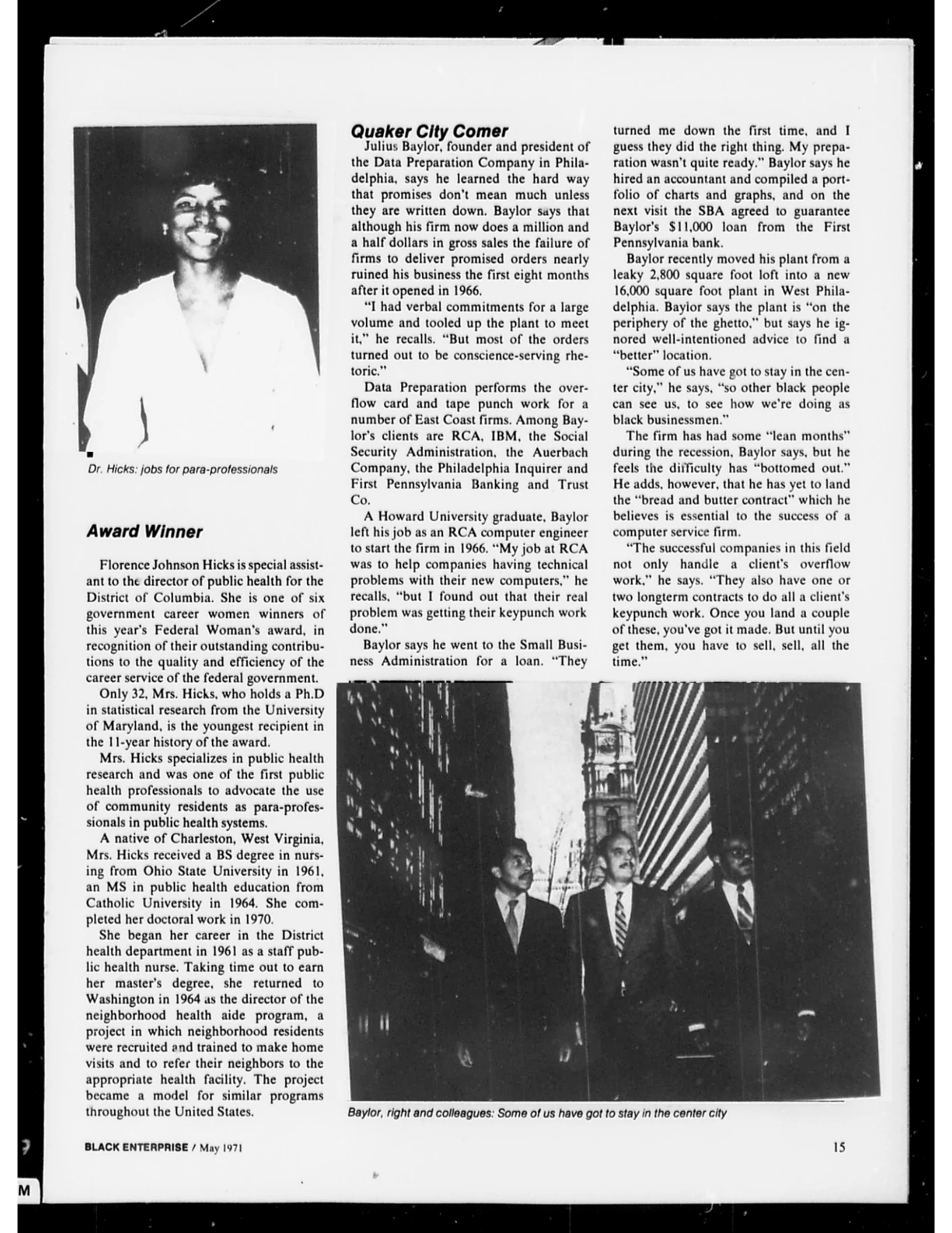
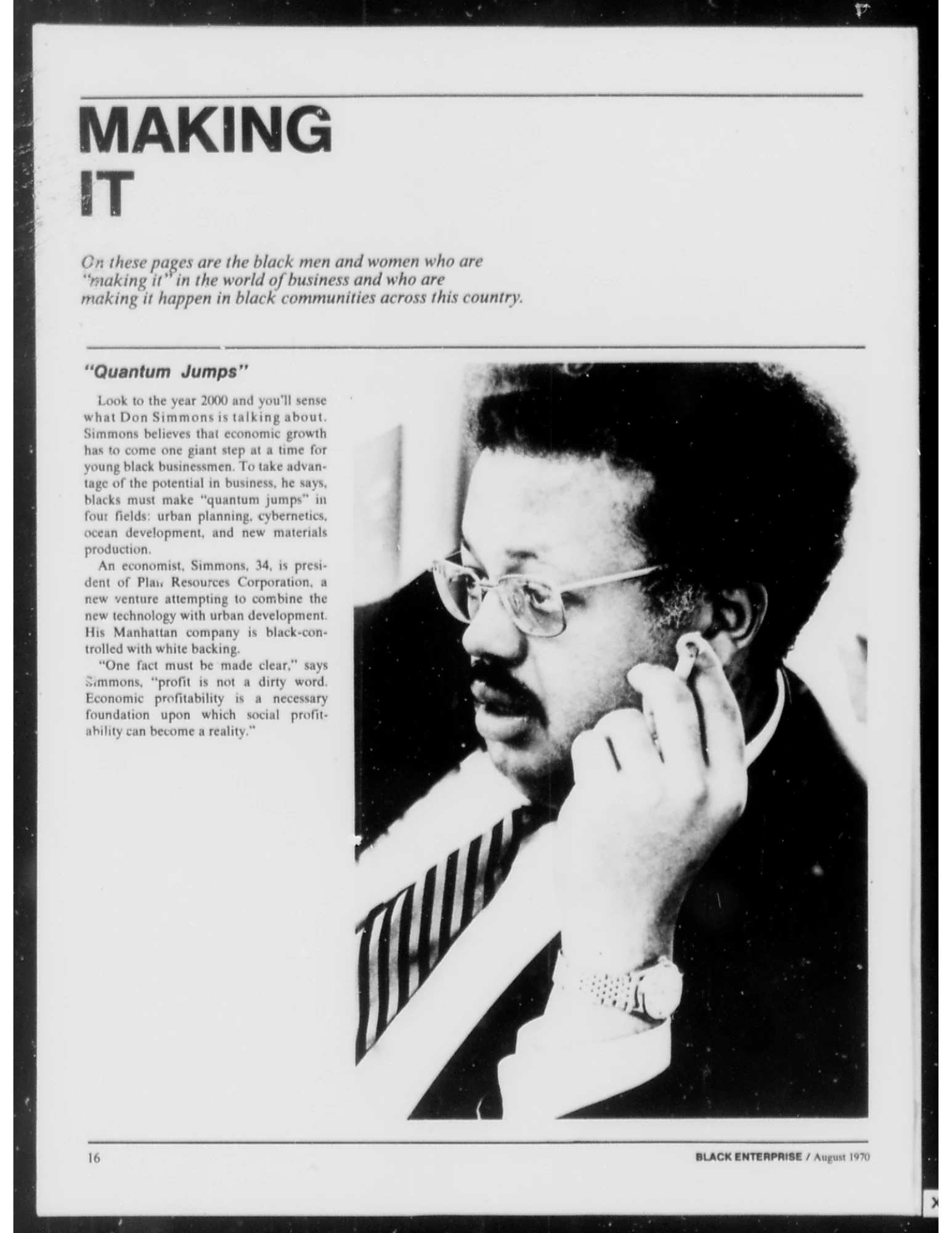
"On these pages are the black men and women who are 'making it' in the world of business and who are making it happen in black communities across this country"
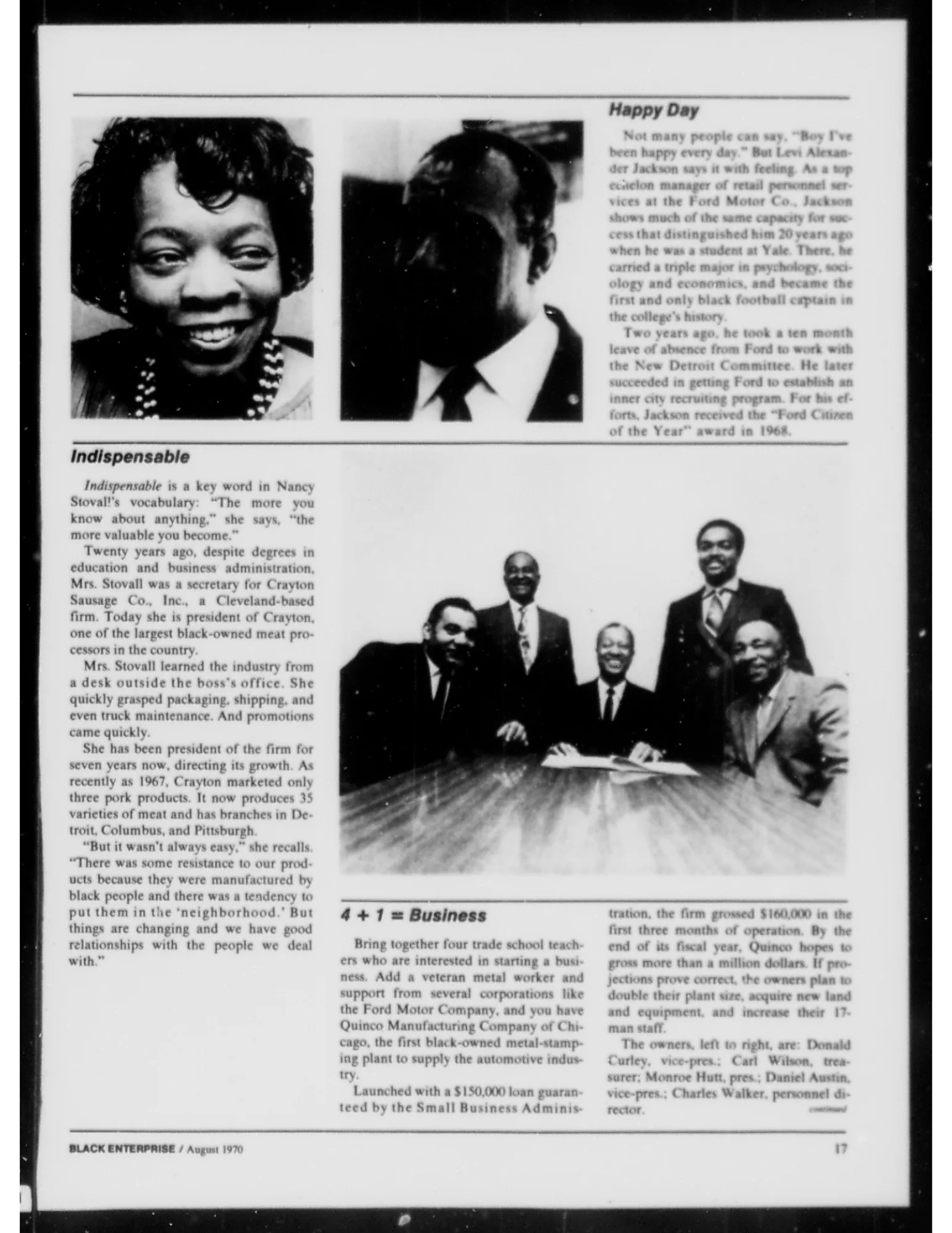
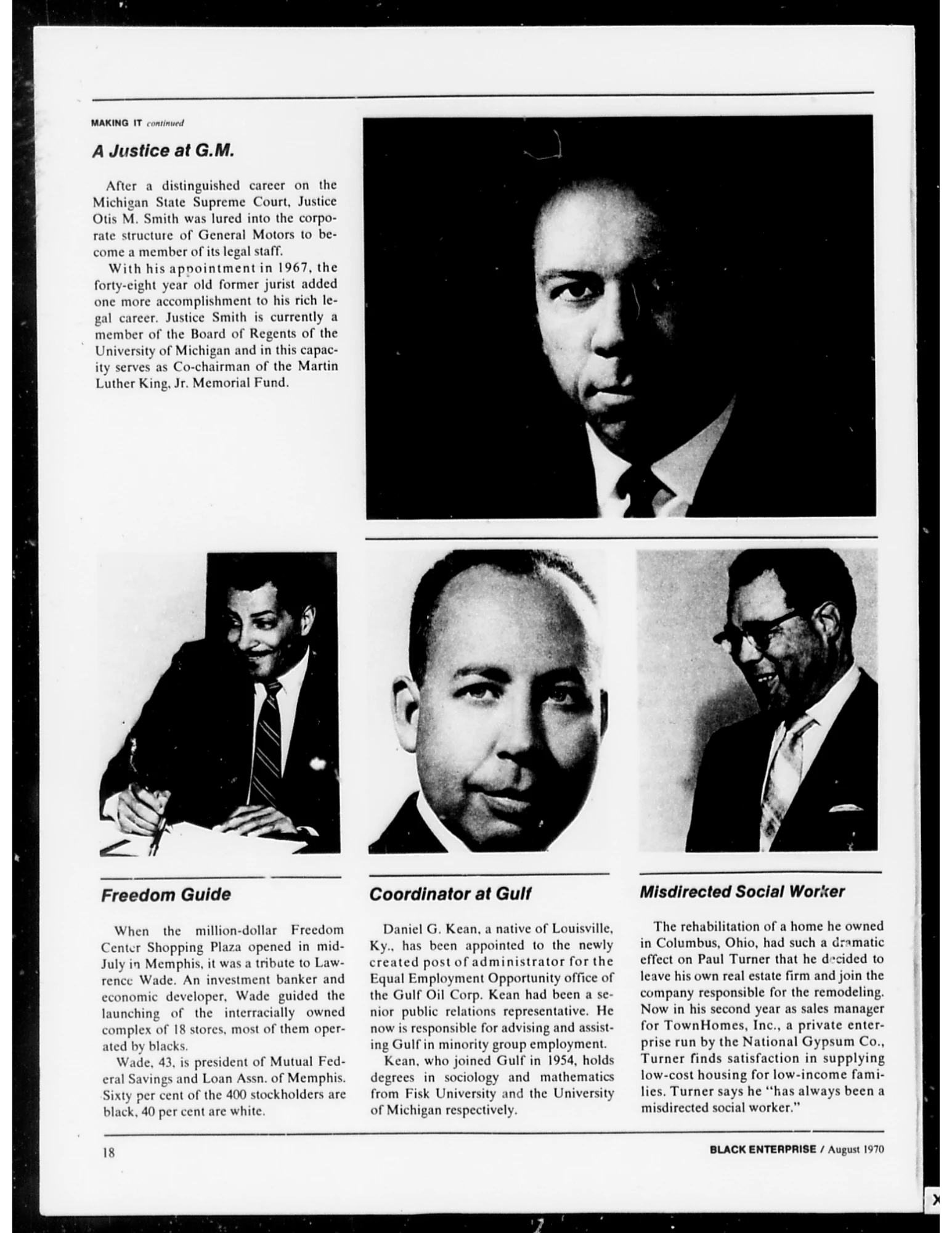
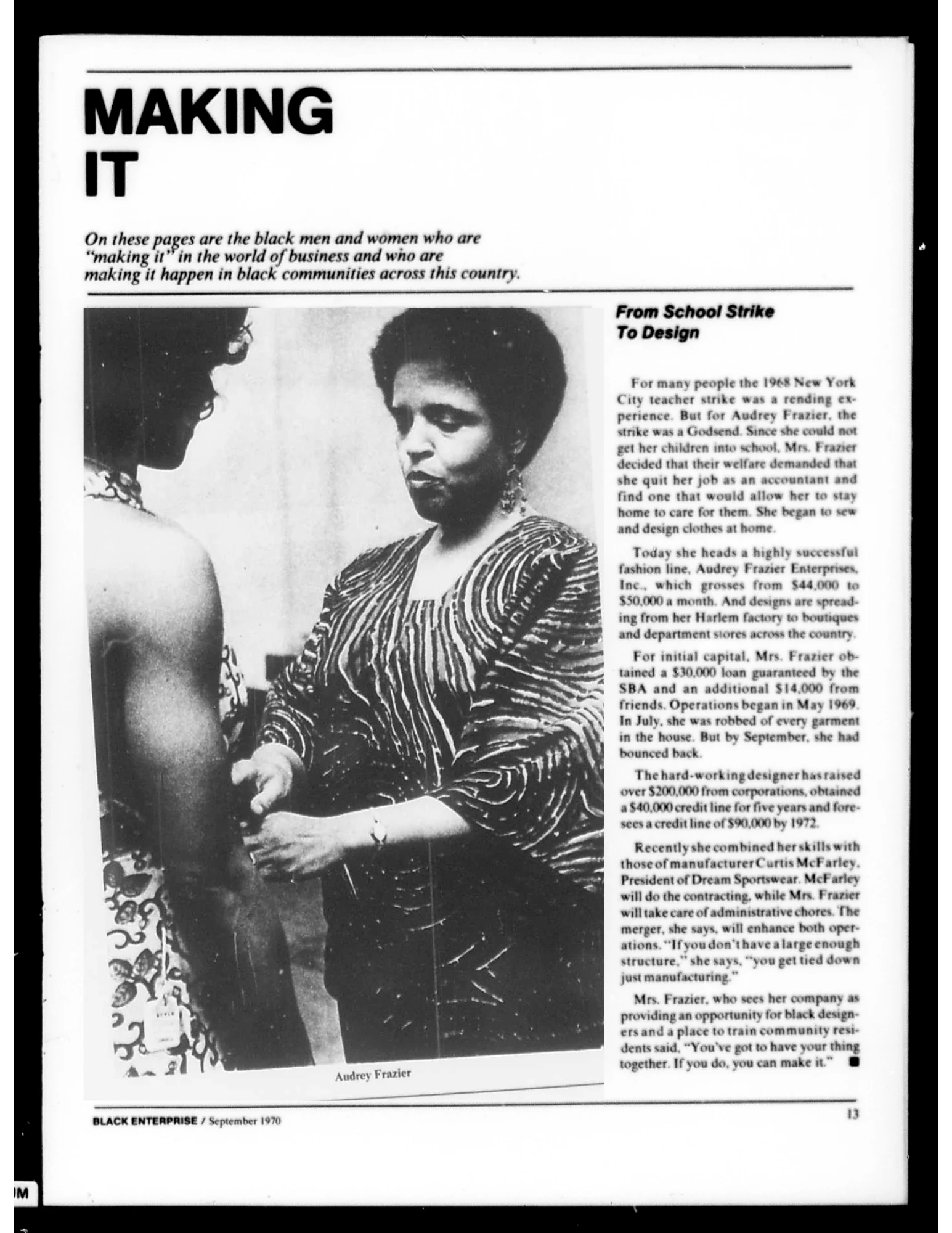
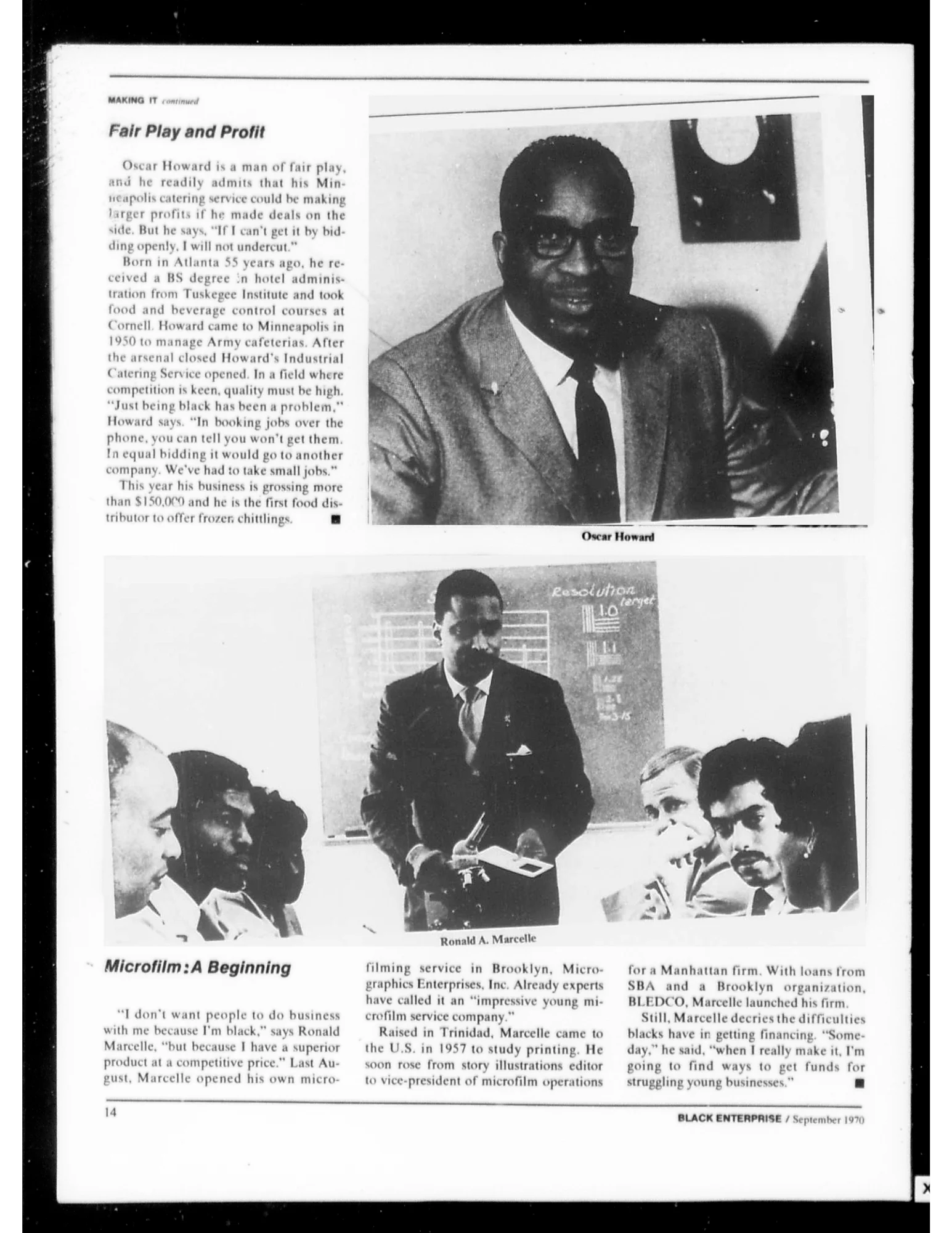
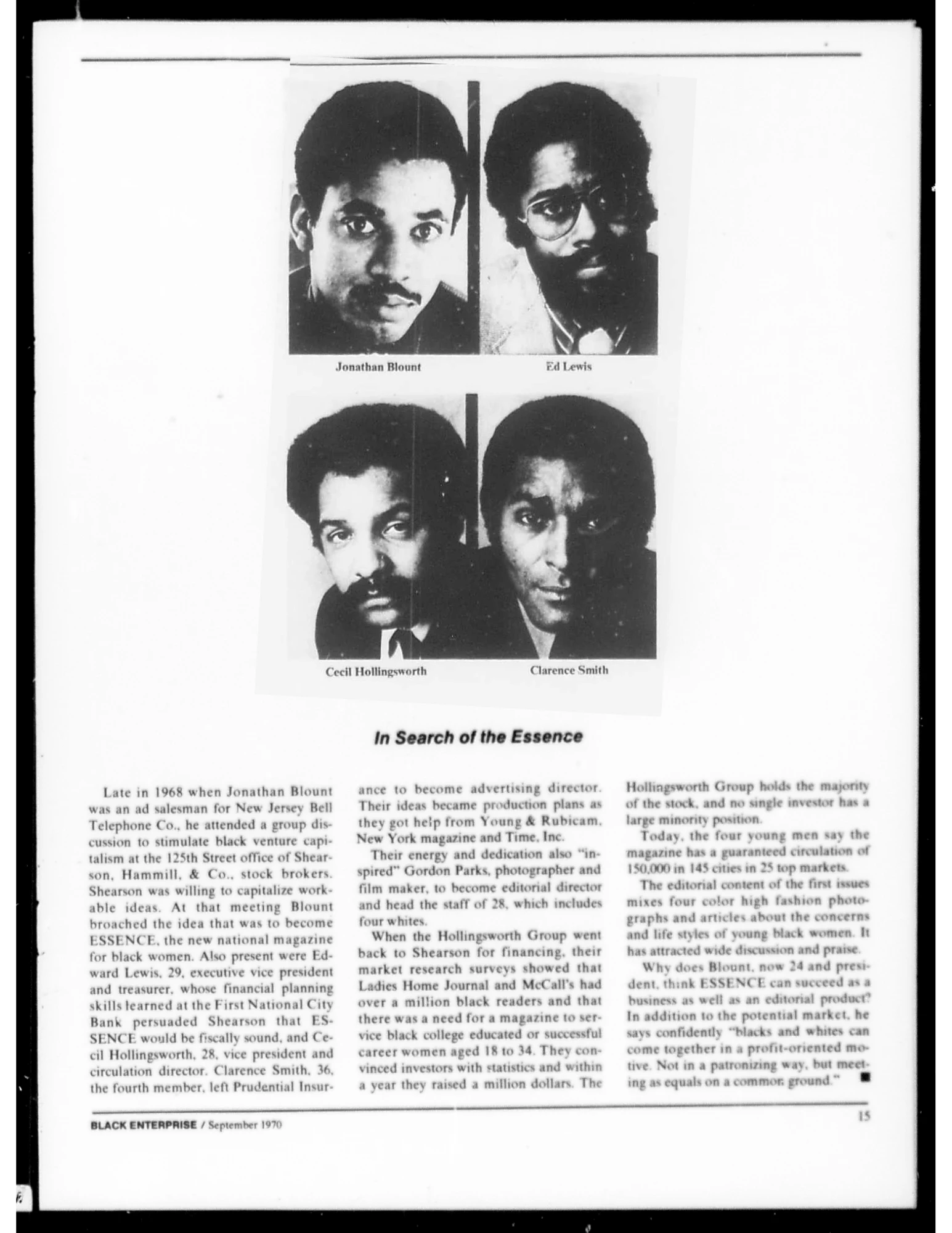
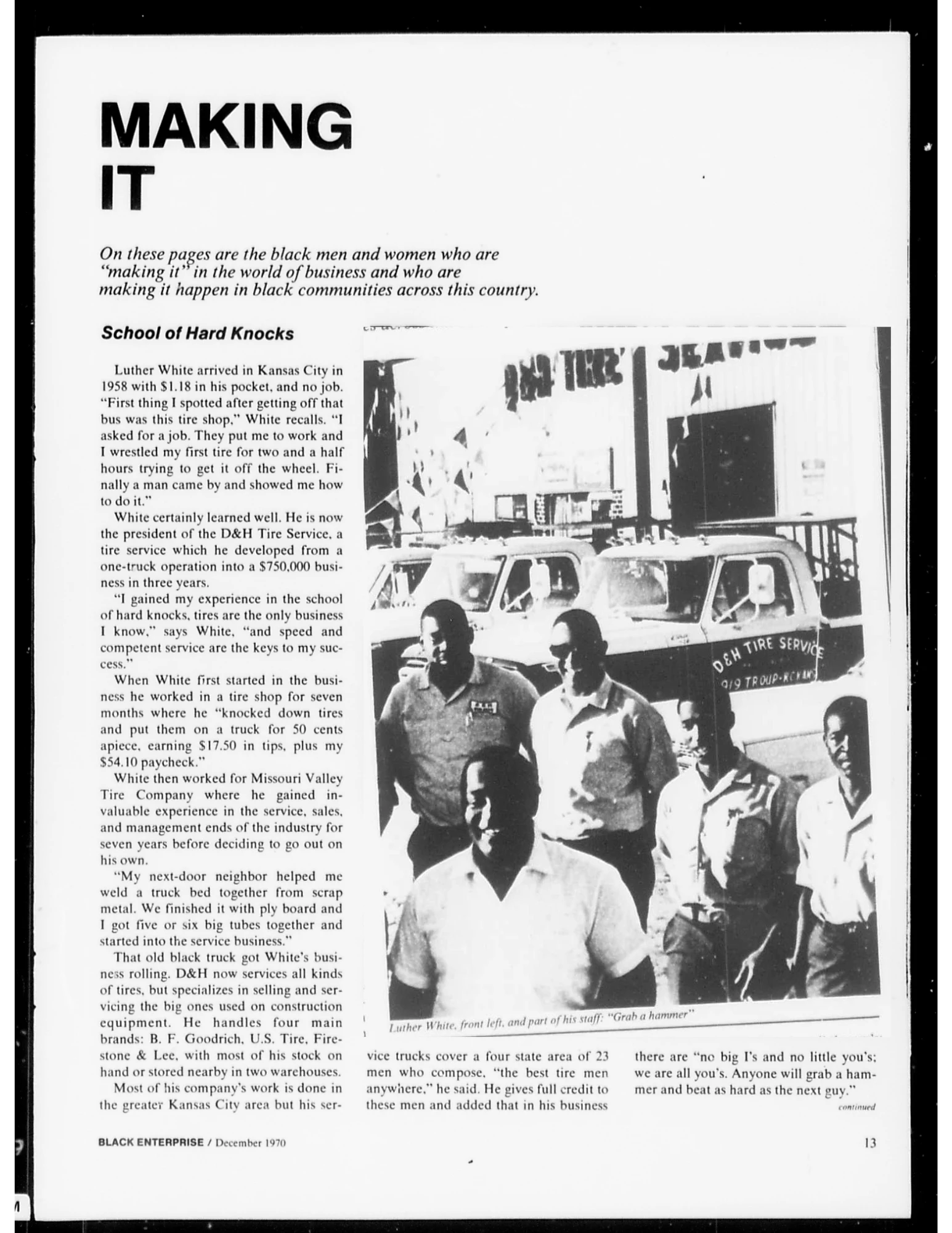
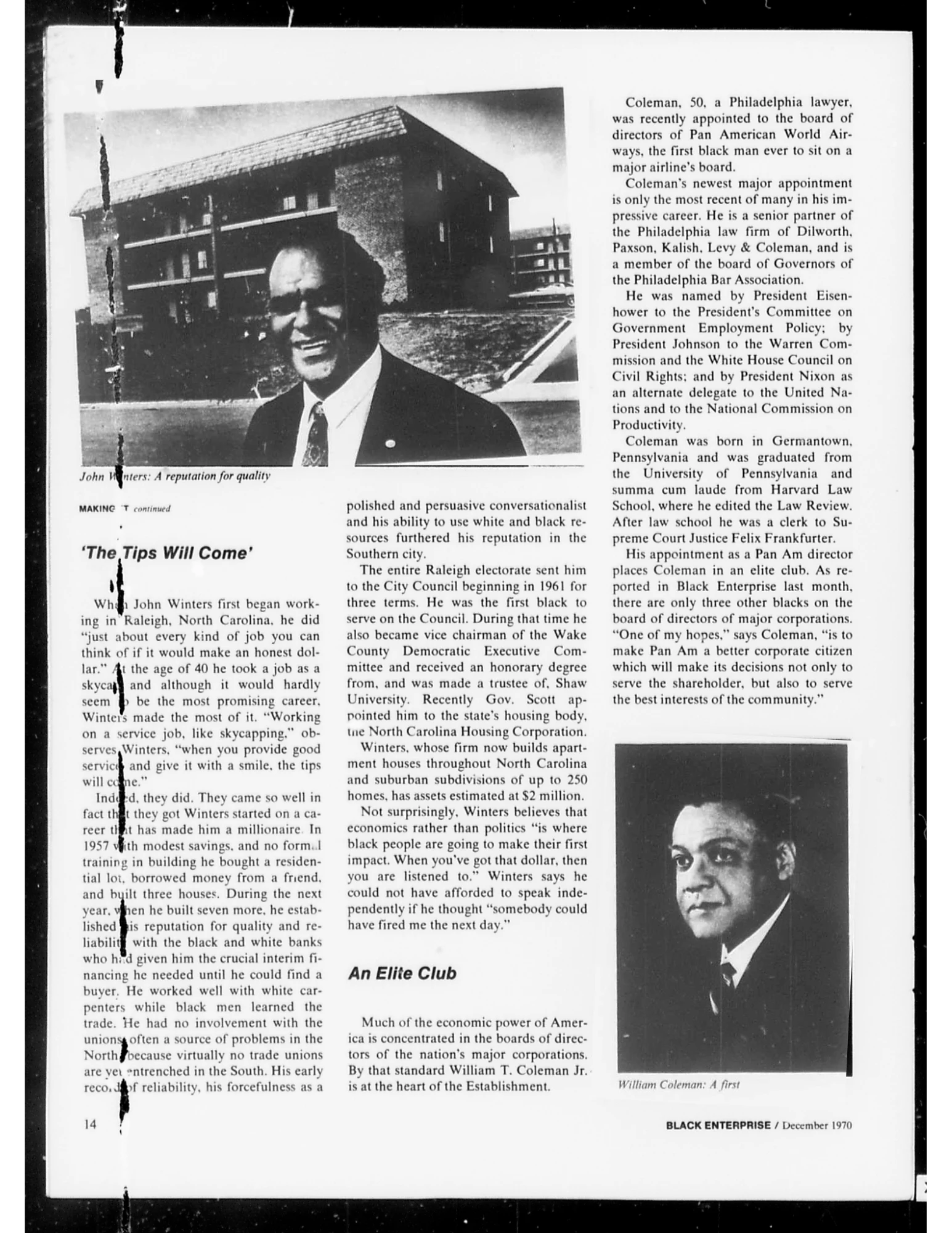
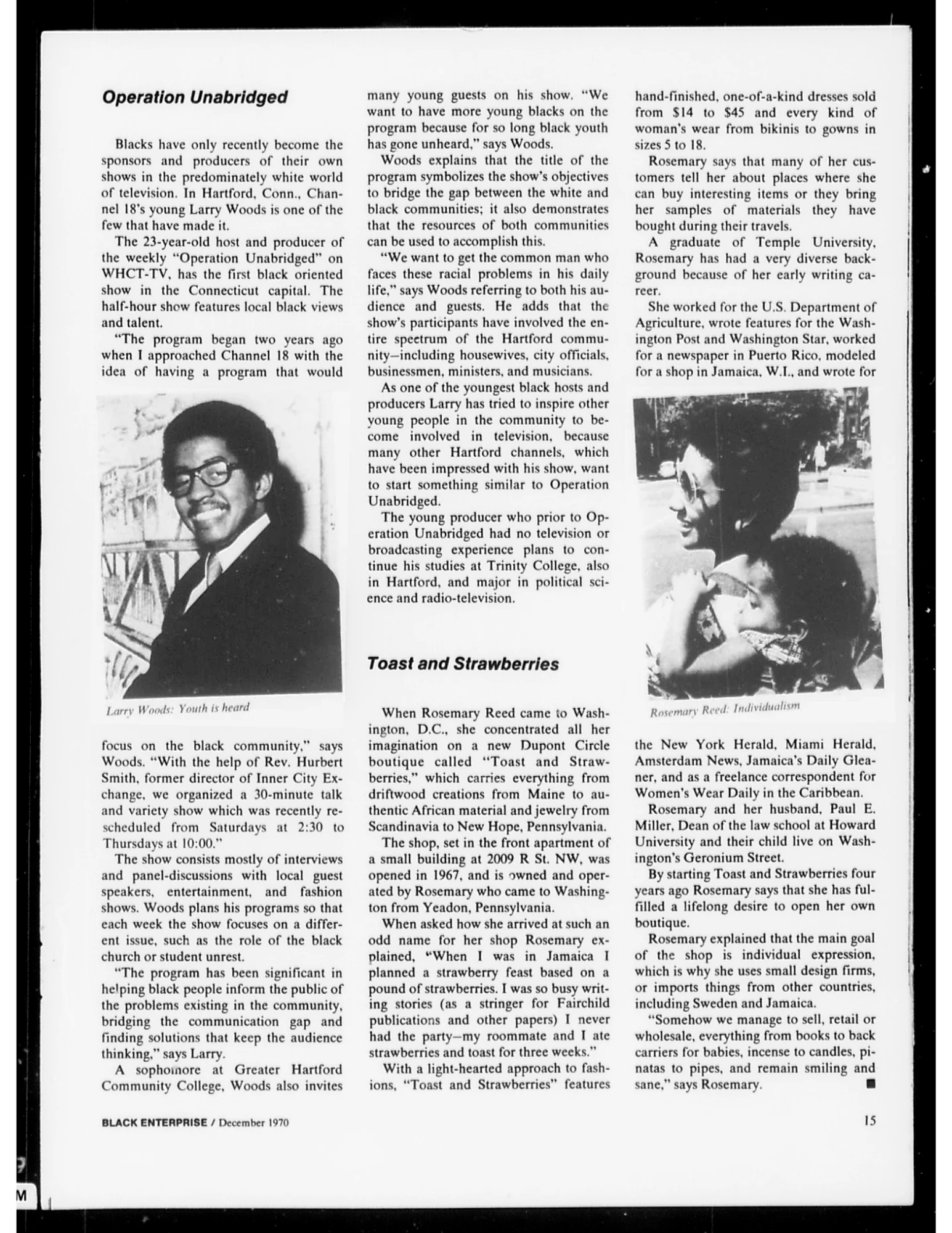
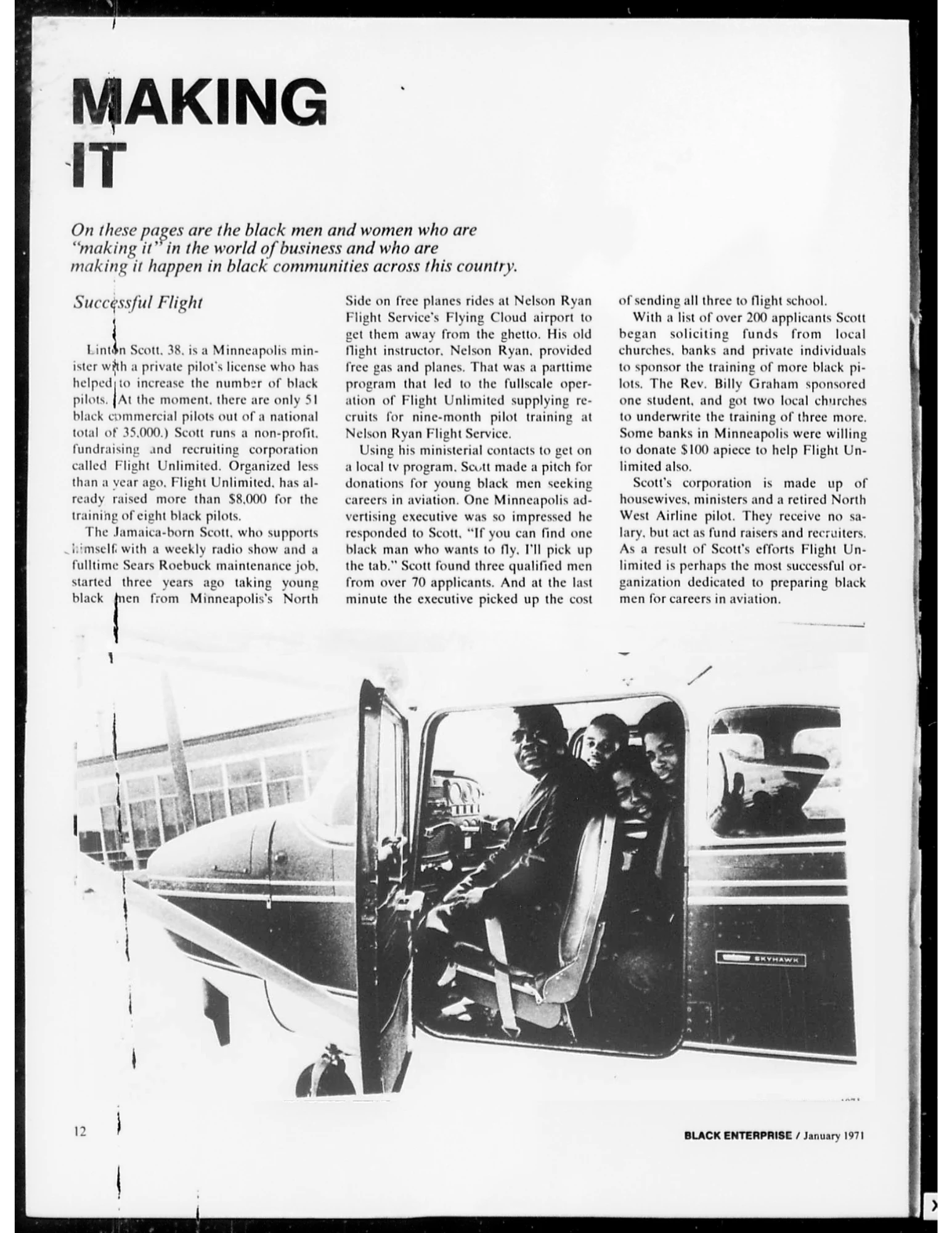
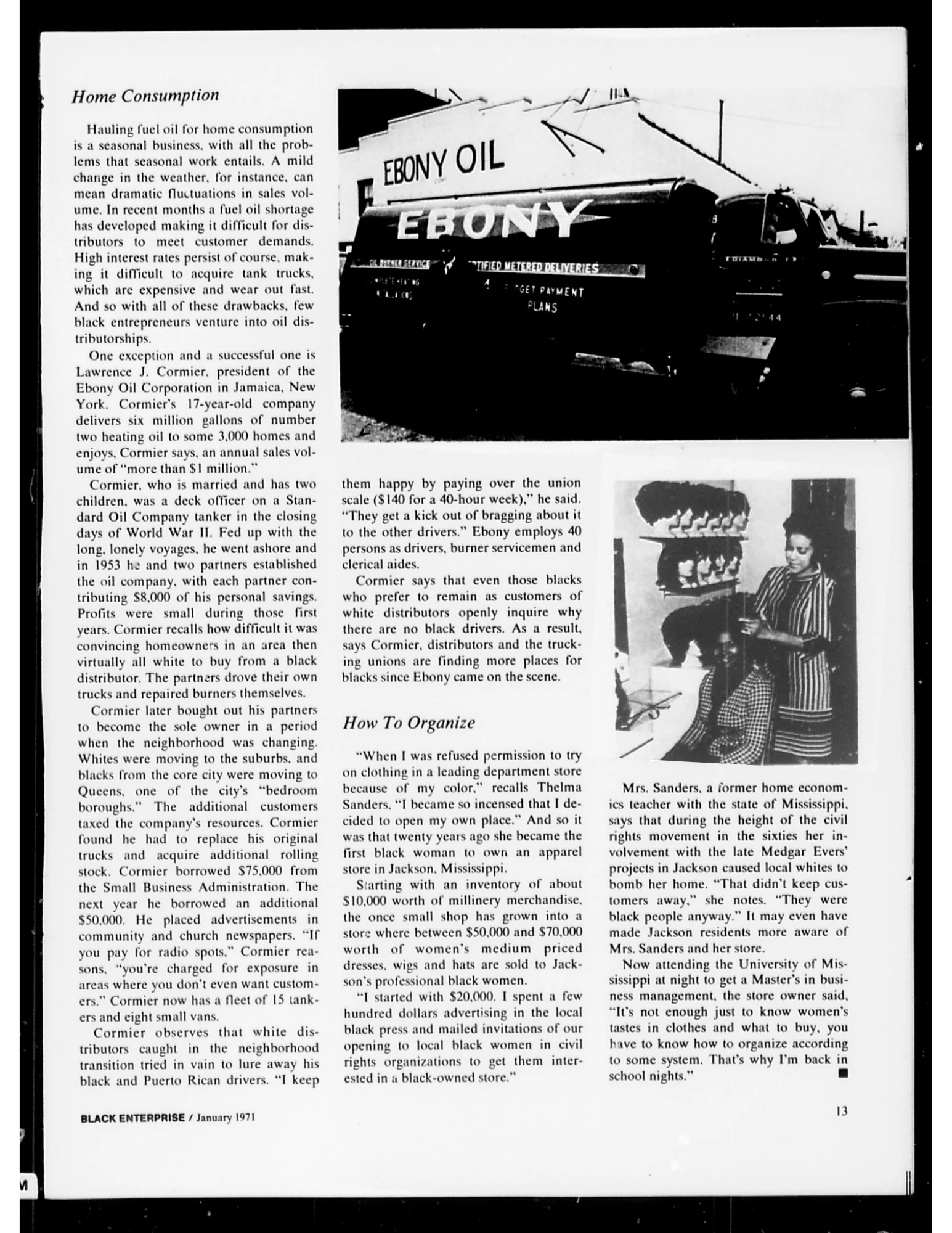
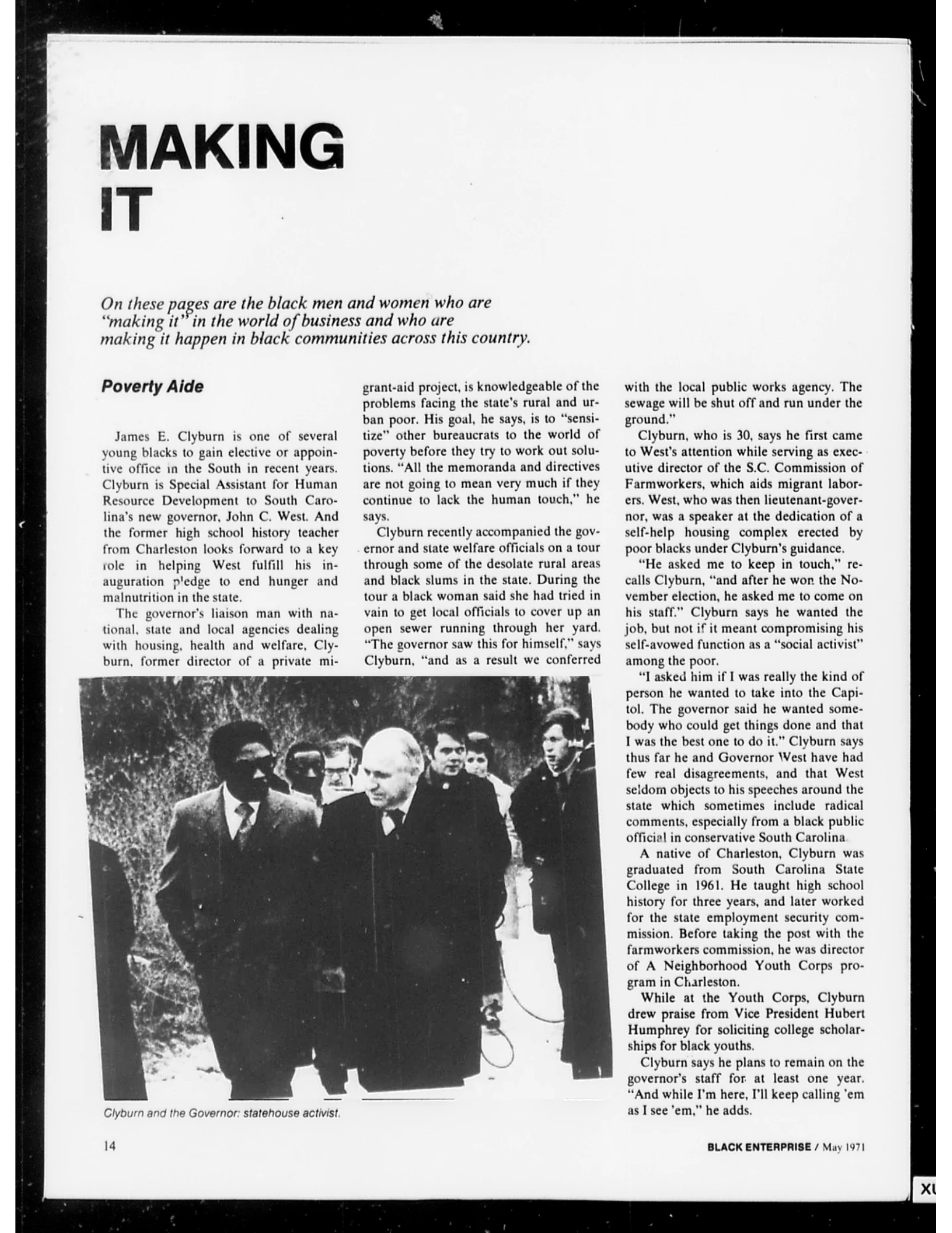

"On these pages are the black men and women who are 'making it' in the world of business and who are making it happen in black communities across this country"

























"On these pages are the black men and women who are 'making it' in the world of business and who are making it happen in black communities across this country"
The "Making It" series highlights specific instances of Black entrepreneurs overcoming racial and economic obstacles to achieve success. By featuring stories such as Luther White's rise from a one-truck operation to a $750,000 tire service business and Audrey Frazier’s transition from accounting to founding a successful fashion company, the pieces motivate readers towards resourcefulness and community support. Overall, these vignettes underscore how Black entrepreneurs made impactful contributions to their industries through creativity and determination.
You can download a PDF version of select "Making It" content from the 1970 and 1971 issues.
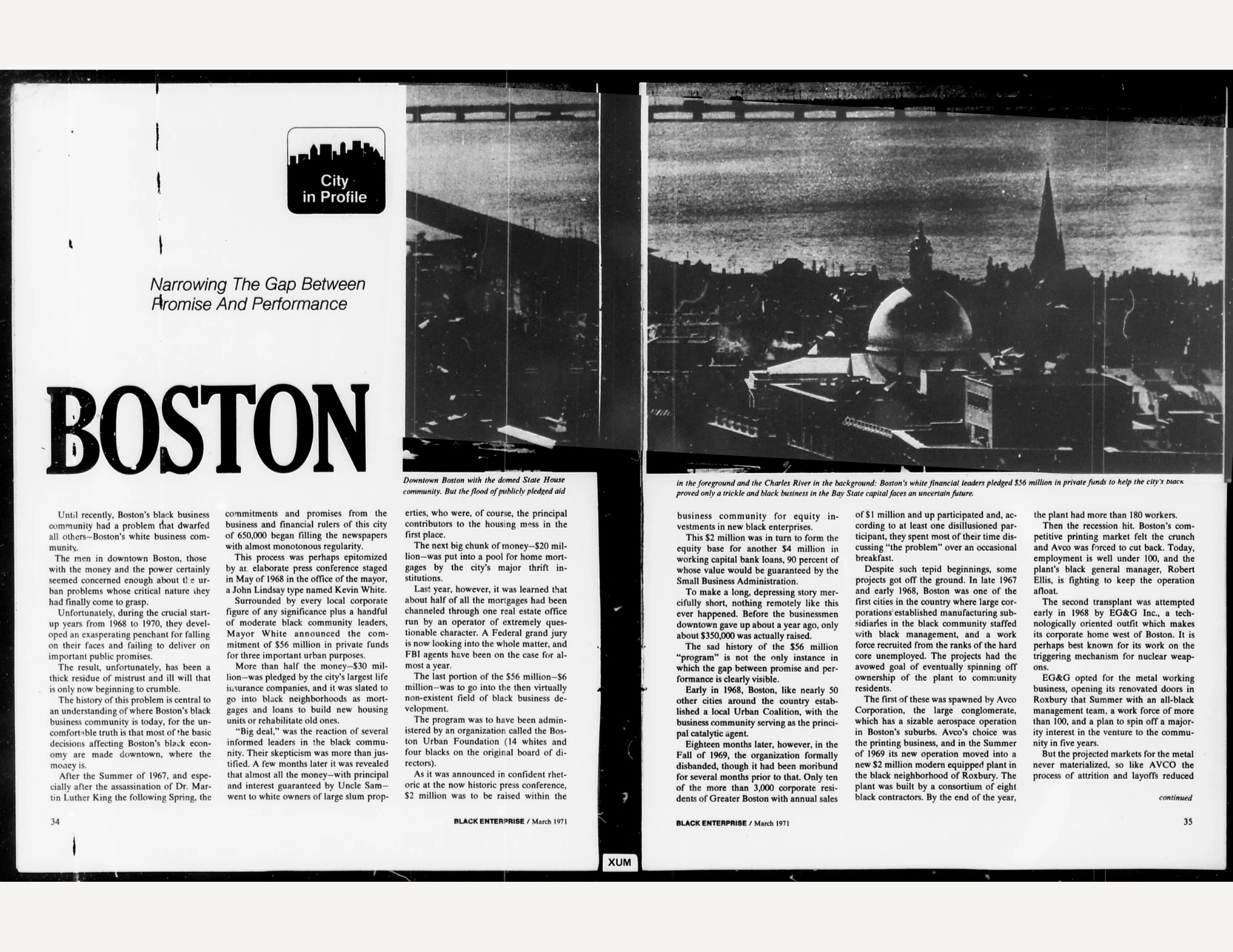.png)
"'We've got to be successful so that people in the community can see that a black-owned business can succeed.'" (p.44)
This city profile from the March 1971 issue unpacks the systemic barriers that the Black business community of Boston faced over 50 years ago, namely a lack of institutional support and limited access to capital. Through several examples, the author demonstrates how Black entrepreneurs struggled to thrive due to the gap between political commitment and tangible support. By contrasting instances of Black success with those of their White counterparts, the profile sheds light on the racial and economic disparities in the city, emphasizing the need for more equitable opportunities across racial divides.
You can download and read a PDF of the entire city profile here.
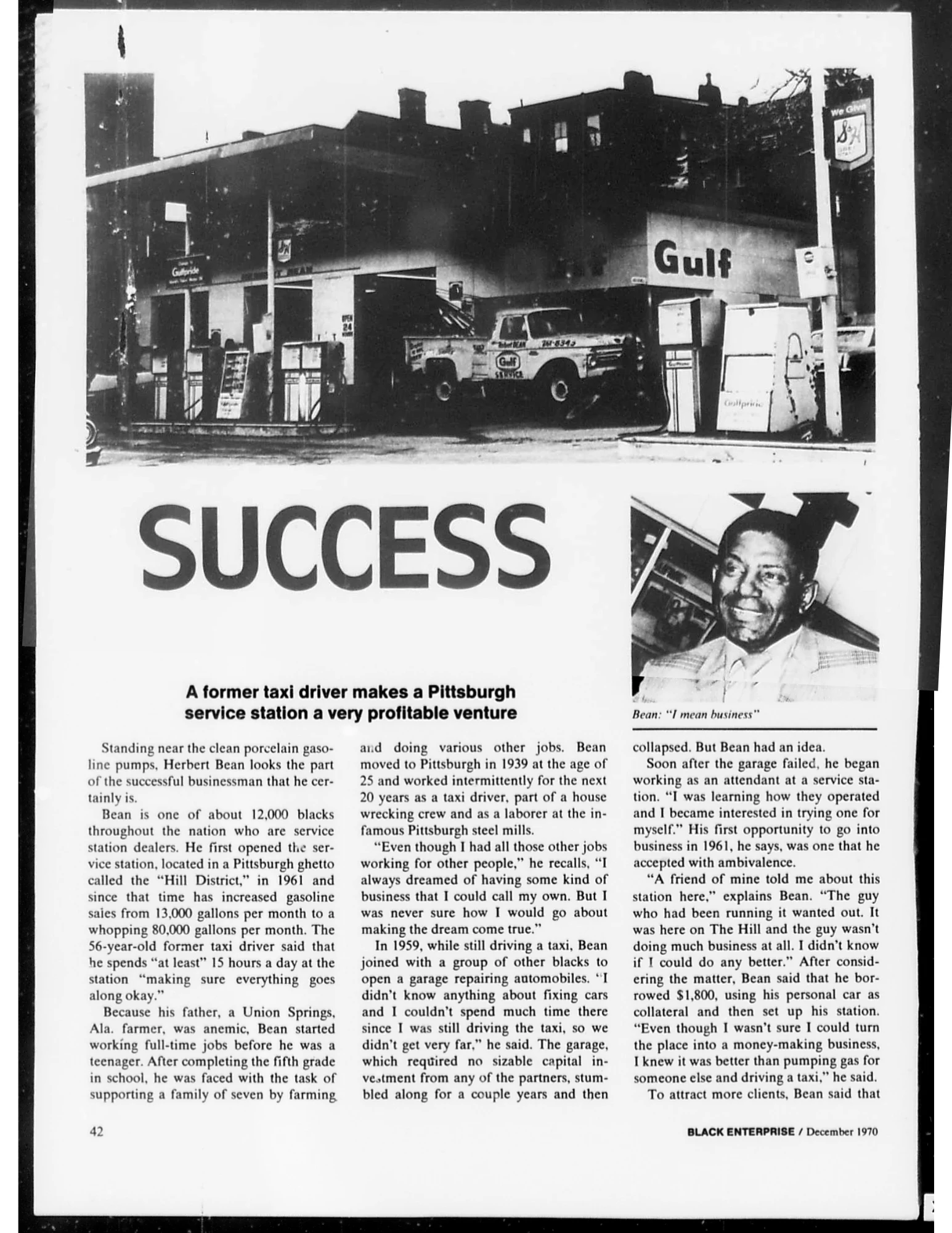
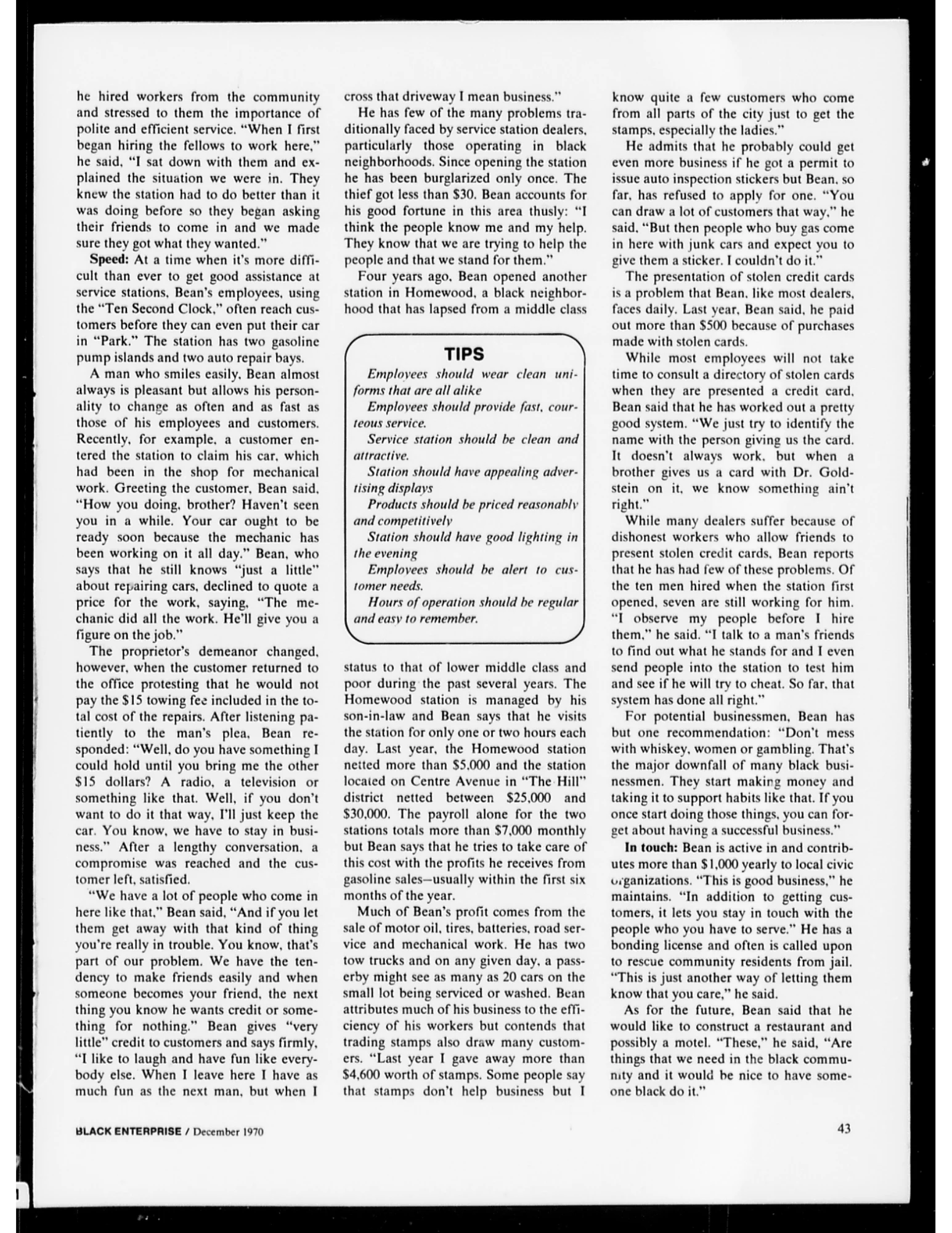.png)
This article examines the entrepreneurial journey of Herbert Bean, a former taxi driver who successfully transitioned into owning and operating a service station in Pittsburgh. Bean's story provides insight into the challenges and strategies of Black entrepreneurship in a racially segregated urban environment. Through a combination of community engagement, customer-focused service, and diligent work ethics, Bean overcame initial setbacks and transformed his service station into a profitable business. His experience underscores the significance of perseverance, strategic labor practices, and the role of local networks in navigating systemic barriers to economic success.
You can download a PDF of the editorial here.
Corporate Reports - Johnson Products Co., Inc.
Baker's microforms collection consists of various corporate reports: annual reports, 10-Ks, prospectuses, proxies, etc. This collection is largely uncatalogued and contains a wealth of information not discoverable via the U.S. Securities and Exchange Commission or similar agencies. To learn more about Baker's holdings, view our Corporate Reports & Filings for Researchers learning module.
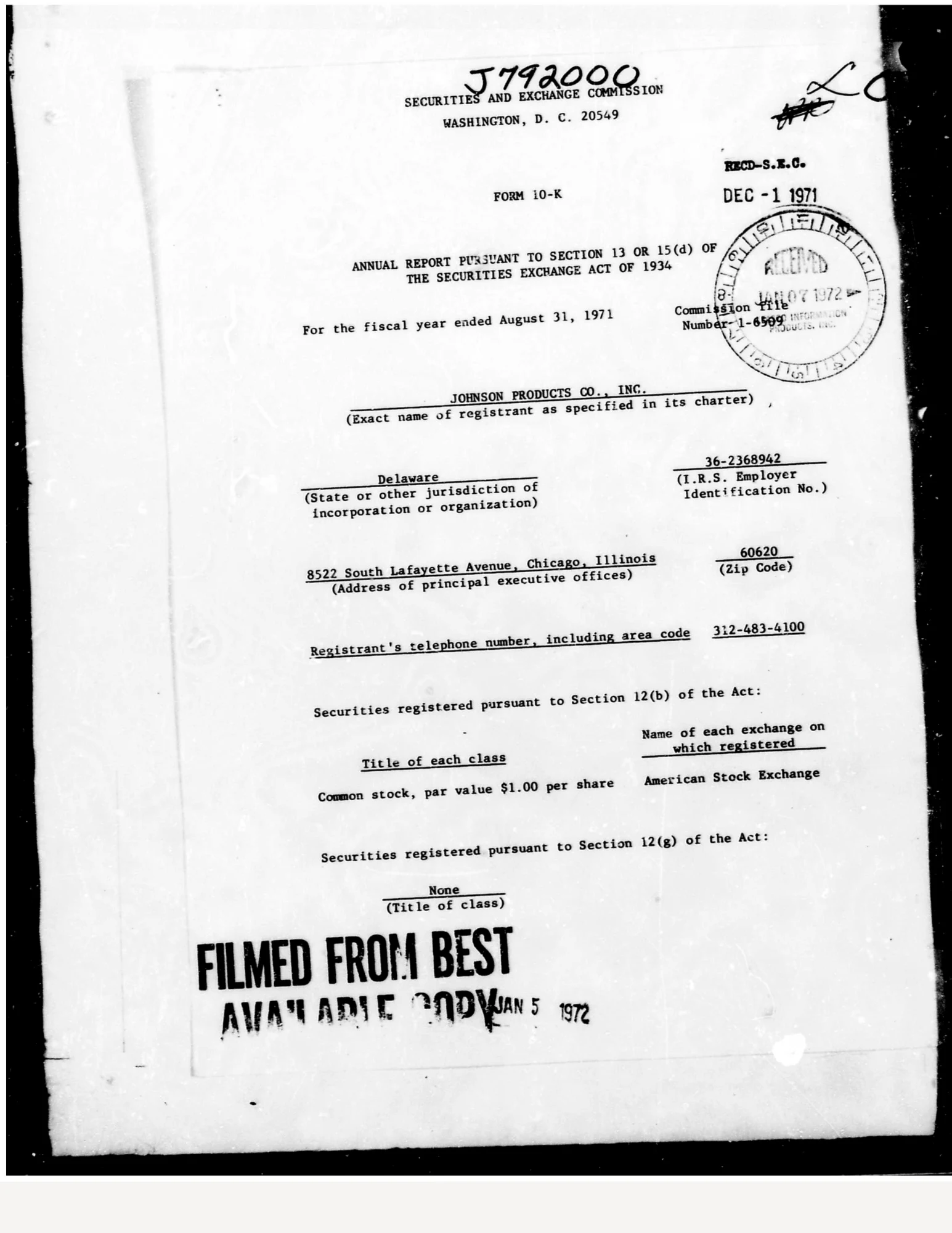.png)
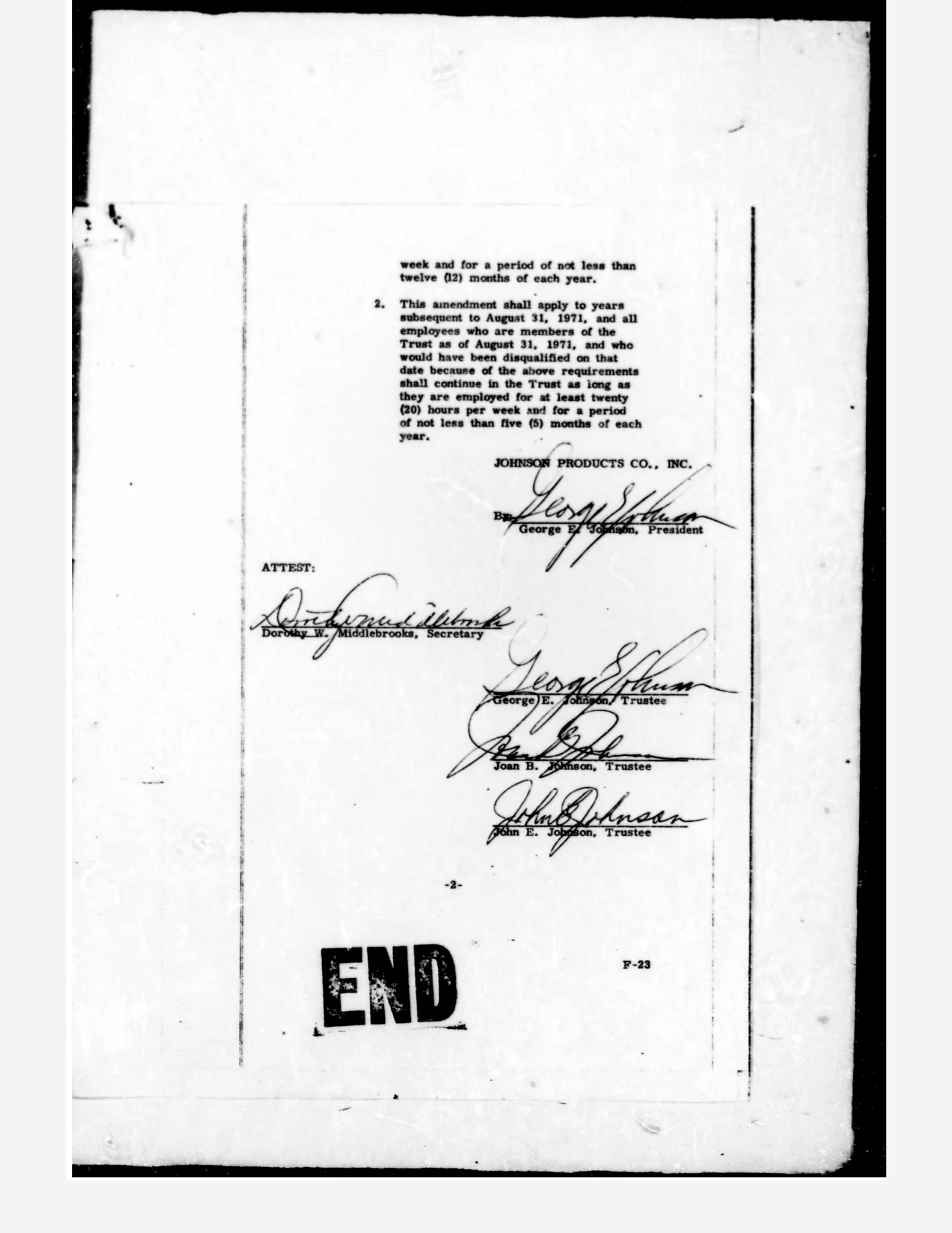.png)
The Johnson Products Company was “the first predominantly black‐operated and black‐owned company to be listed on a major stock exchange.” They went public in 1971 and primarily sold Black hair care products. The company was later sold to IVAX Co. in 1993 and changed hands a few times before being acquired by Proctor & Gamble in 2003. Finally, Proctor & Gamble sold the Johnson Products Company to RCJP Acquisition, an acquisition vehicle formed by Rustic Canyon Partners and St. Cloud Capital in 2009. As of 2015, the company is no longer in business.
Learn more about the history of The Johnson Products Company in the book Afro Sheen: How I Revolutionized an Industry with the Golden Rule, from Soul Train to Wall Street.
You can download a PDF of their first 10-K report here.
Special Collections and Archives
Special Collections and Archives collects and makes available the records of business dating from the 14th century to the present and the records of the Harvard Business School since its founding in 1908.
Agents of Change: The Founding and Impact of the African-American Student Union
Celebrating the 50th Anniversary of the founding of the African-American Student Union, Agents of Change examines the African American experience at Harvard Business School from 1915 to 1990, and honors the first 75 years of groundbreaking contributions of Black alumni and faculty.
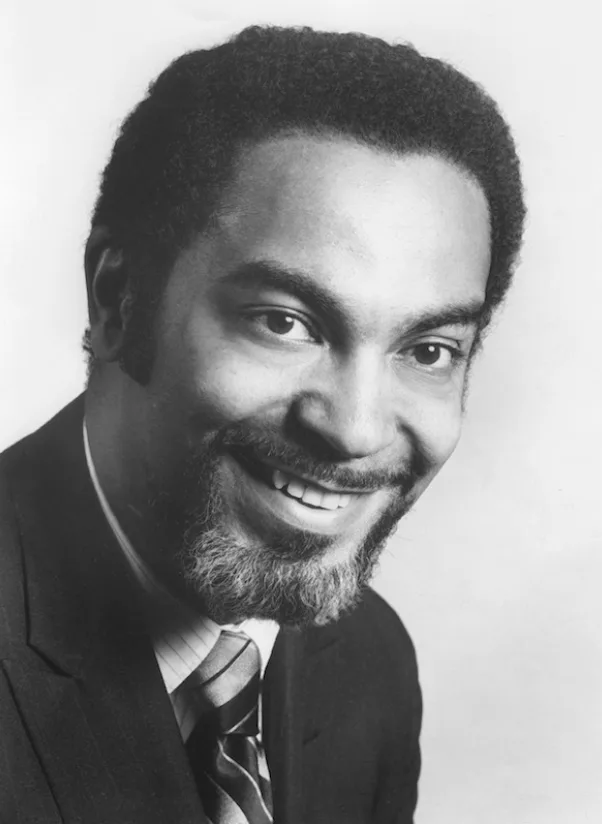
Ulric St. Clair Haynes Jr., ca. 1968. HBS Archives Photograph Collection: Faculty & Staff. Baker Library, Harvard Business School.
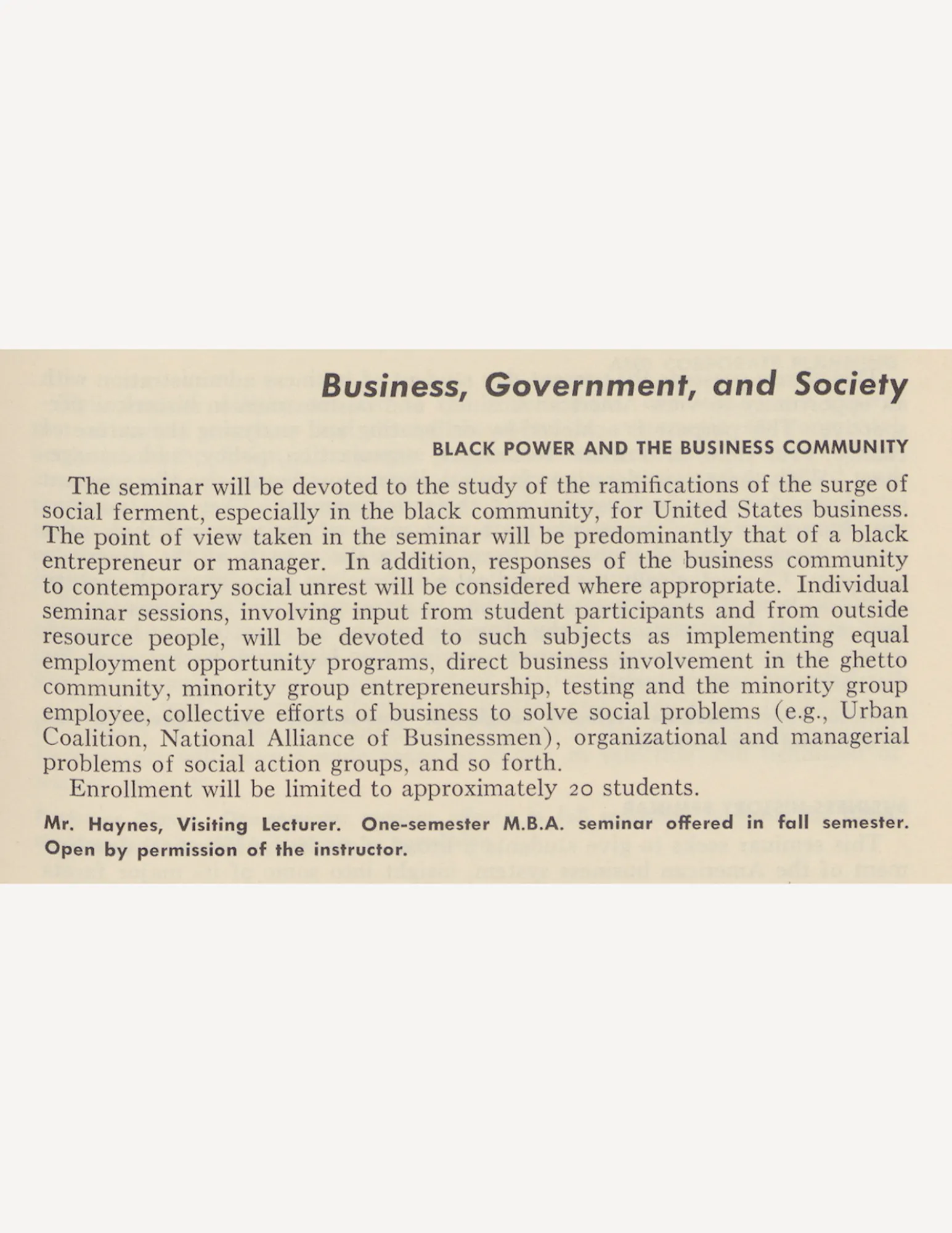.png)
“Black Power and the Business Community.” Harvard University Graduate School of Business Administration Course Catalog. July 15, 1970. Baker Library, Harvard Business School.
The early efforts of the African-American Student Union (AASU) had a direct influence on the HBS classroom. In response to AASU's core demands, HBS began to broaden the focus of its curriculum. Ulric St. Clair Haynes Jr. introduced the seminar "Black Power and the Business Community," presented from the point of view of Black entrepreneurs and managers. Haynes was president of Management Formation, Inc., a firm focused on increasing diversity in managerial positions, and served as a visiting professor from 1968 to 1972
Benjamin Tanner Johnson Papers, 1900-1976
Benjamin Tanner Johnson (1896-1978), one of the earliest African American graduates of Harvard Business School, received an MBA in 1921. Johnson’s varied career included stints in banking, government, education, and the law. His papers include correspondence, application documents, printed brochures, publications, newspaper clippings, and photographs that outline his career and his role in community affairs. The Johnson papers have been digitized and are available online in their entirety.
.tif)
Benjamin Tanner Johnson, circa 1919. Baker Library, Harvard Business School.